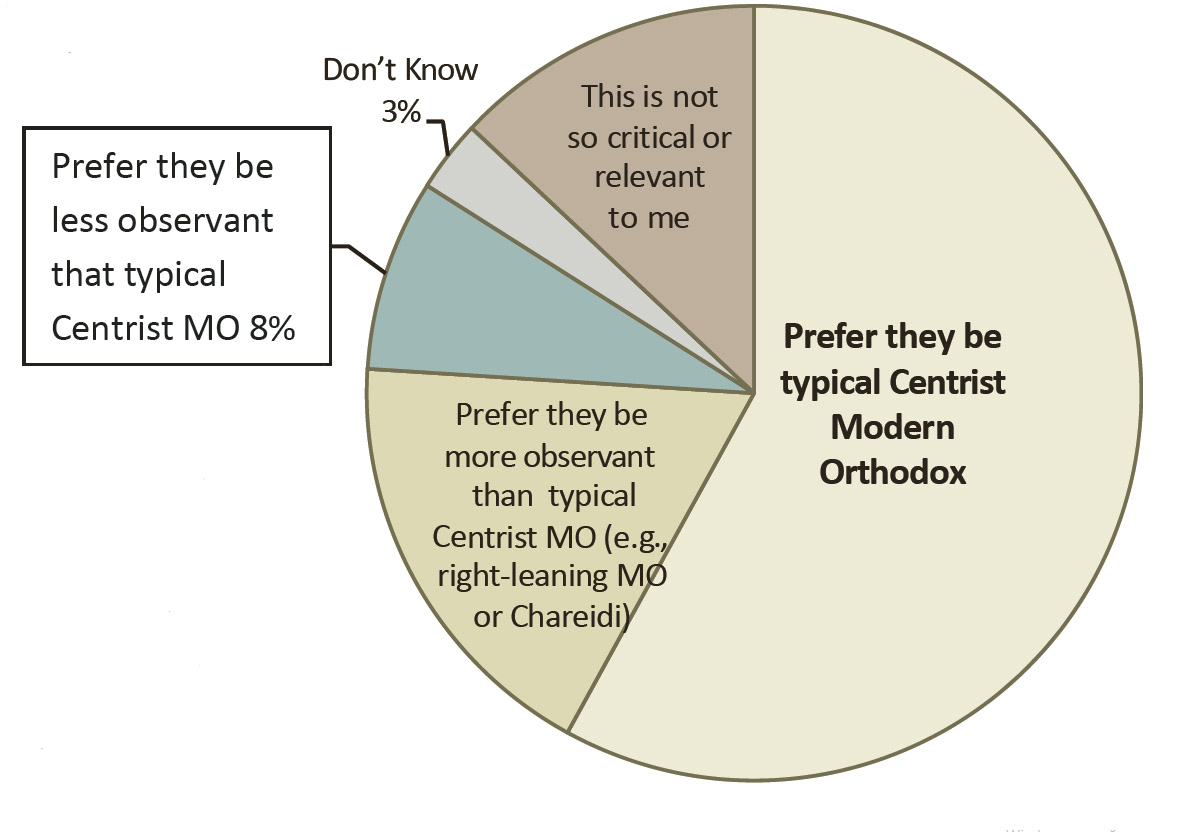

Jews are very opinionated on a wide range of topics. Conversations around the Shabbat table, at Kiddush or at a simcha reflect this propensity, often with a vehemence. Sometimes it is very instructive to collect and analyze these opinions and attitudes. On November 4, Nishma Research released a comprehensive 90-page study entitled “The Successes, Challenges, and Future of American Modern Orthodoxy.” This research project was sponsored by the Micah Foundation. (The full report is available at: hxp://nishmaresearch.com/social-research.html )
This wide-ranging study deals with many aspects of Modern Orthodox life. I am particularly interested in how the Modern Orthodox community views day school education. In broad terms, only 55% of respondents agree that their Orthodox community school systems are successful in creating committed Orthodox Jews, while 34% disagree. The historic near-universal attendance at Orthodox Jewish day schools seems to be slipping, as 31% of respondents say they might consider public school as an option. Modern Orthodox parents hope their children will be religiously observant and more than three-fourths want their children to be typical Centrist Modern Orthodox Jews (58%) or more observant than that (18%). About one in eight (13%) say their child’s religious preferences are not so critical or relevant to them.
Asked if the school systems in their Orthodox community are successful at creating committed Orthodox Jews, 34% did not think so. Asked if they consider the cost of their children’s Jewish education to be money well spent, 23% of the respondents answered no, and 31% of the MO families surveyed said they would consider sending their children to a public school.
There is widespread concern about people leaving Orthodoxy (63%), and even more concern that communal leaders are not adequately addressing the issue (67%). In reaction to Nishma’s 2016 survey of people who have left Orthodoxy, there was quite a bit of trepidation among shuls and communal organizations about discussing this topic. While it is a difficult and often uncomfortable topic, people want it to be much better addressed.
Respondents were mildly optimistic about MO’s future religious strength and growth in numbers, but quite pessimistic about its cohesiveness. Respondents offered many suggestions for the future of Modern Orthodoxy, most frequently cited were: seek unity, maintain Torah values, enhance spirituality, define and hold the center, expand the role of women and address children’s educational issues and overall communal costs.
This study contained many open-ended questions, affording respondents a broad opportunity to share their thoughts in their own words. [A longer document containing all of the responses is available at http://nishmaresearch.com/social-research.html.]
Other fascinating findings: Respondents over the age of 55 are less often “24/7 Orthodox” but more often find it spiritually inspiring and are more comfortable with day-to-day Orthodox living, while younger MO respondents (18-34) are more pessimistic about the future of Modern Orthodoxy. Regarding left/right orientation—Modern Orthodoxy’s “big tent” encompasses people at differing levels of belief and practice. Respondents’ “denominational distribution” is somewhat a bell-shaped curve with a plurality in the center.
Those who view themselves on the “left” of Modern Orthodoxy find it less spiritually inspiring, far less often see themselves as “full-time Orthodox” and are far more willing to compromise in their interactions with secular society. The left is far less comfortable with day-to-day Orthodox living and has an overwhelming view that Modern Orthodoxy is unwilling to change, in sharp distinction with the right, which overwhelmingly sees Modern Orthodoxy as making too many changes. Perhaps affecting these views is the extent to which couples are “on the same page.” While 81% of right-leaning respondents’ spouses were seen as being at the same level religiously, this was true for only 54% of left-leaning respondents. More than one in four of the left-leaning respondents’ spouses are less religiously observant than their spouse.
Responses were received from 31 states; 18% of the respondents were from New Jersey. If these results reflect our community’s concerns, perhaps it is time to either do our own survey or at least convene groups to discuss them.
Dr. Wallace Greene has had a distinguished career as a Jewish educator, principal, administrator and consultant to day schools.








